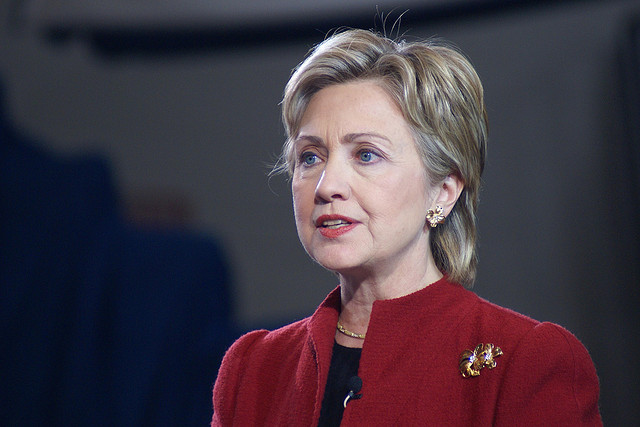Hillary Clinton recently proposed some reforms to the way America conducts its elections, arguing that we need to be working to raise voter turnout. Below, I answer some questions about her recent announcements.
Isn’t this just political? Isn’t Hillary Clinton proposing this just to win votes?
Of course it’s political. I can’t believe I even asked that. She’s trying to stake out a position she thinks will endear her to most voters. She’s also trying to force Republicans to make statements against making it easier to vote, and remarkably, some of them are actually doing it. But just because something is political doesn’t mean it isn’t substantive. There were very solid political reasons for supporting the Civil Rights Act and the Social Security Act, and we regard those as important substantive steps forward in hindsight.
Clinton wants to establish a 20-day voting period. Would that actually raise voter turnout?
Probably not. Expanding the amount of time in which people may vote actually undermines voter turnout a bit by making Election Day less important. The people who take advantage of early voting are generally people who were going to vote anyway. That said, it does make those voters’ lives easier, and they’d probably be grateful to Clinton for that.
Clinton wants to make voter registration automatic instead of the responsibility of citizens. Would that actually raise voter turnout?
Yes. Ours is one of the only democracies in the world that requires citizens to affirmatively opt in to become registered voters. This is the main reason that we have one of the lowest voter turnout rates in the world. The creation of voter registration rules in the early-20th century contributed to a roughly 20-point decline in voter turnout. Getting rid of this archaic system and following the path recently charted by Oregon would likely raise voter participation substantially.
I know I shouldn’t ask again about this being political, but doesn’t increasing voter turnout primarily benefit Democrats? So isn’t this just self-serving for Clinton?

Not necessarily. What evidence scholars have suggests that universal turnout wouldn’t necessarily benefit Democrats much. And it’s not like Democrats have been totally consistent on this issue. They have historically supported off-cycle local elections, which tend to have lower voter turnout but favor Democratic-leaning interest groups. That said, most current Democratic officeholders tend to favor measures that would boost turnout, while the bulk of proposals that would reduce turnout are coming from Republicans.
Do the Republicans have a point on this one? Even if voter fraud is very rare, doesn’t it make sense to try to make it rarer?
That would make sense only if the process of preventing voter fraud was a costless one. But it’s not. Efforts to be more vigilant about voter fraud, such as by demanding photo identification from would-be voters or requiring them to pre-register, end up deterring many perfectly legitimate voters from participating. Those deterred voters are poorer and more likely to be members of racial minority groups—that is, they would usually not vote for Republicans. For every fraudulent vote that’s deterred, voter participation could drop by hundreds or even thousands.
But how do you separate the politics from the policy in all this?
You really don’t have to. Every policy has a political side to it. That said, though, easy access to the polls is (or should be) a basic American value. According to a United States citizenship test, the right to vote is the most important right Americans have. And yet, as Cass Sunstein notes, it’s the only right that you have to apply to the government to claim. That’s silly; either it’s a right or it isn’t. If we consider it a right, then we should make it easy for people to exercise it. The primary beneficiaries of this wouldn’t necessarily be Democrats, but even if they would be, that doesn’t make it suspect.
There are plenty of parts in the American political system in which voters don’t have a say, and shouldn’t. But for the parts where they do, it’s ridiculous to make it hard for them to participate. If we really do believe that the U.S. is a model democracy for the rest of the world, we should prove it by allowing it to be democratic.
What Makes Us Politic? is Seth Masket’s weekly column on politics and policy.





